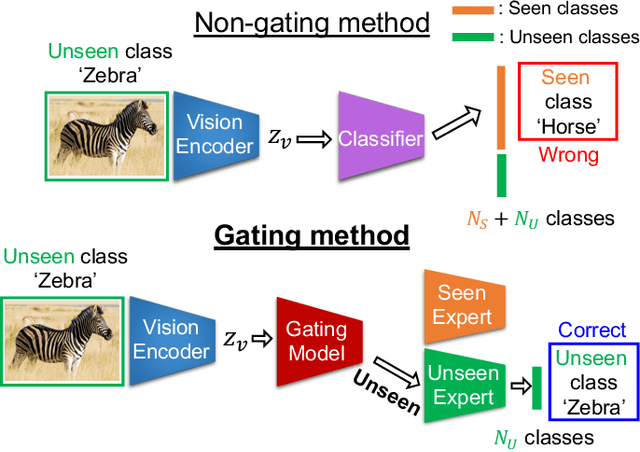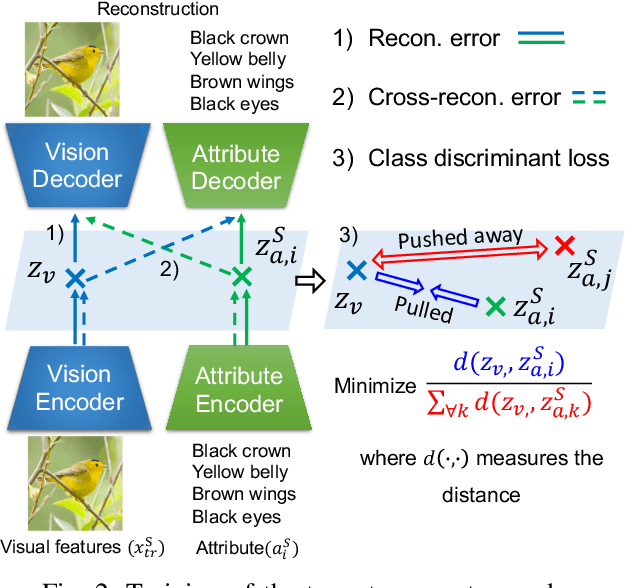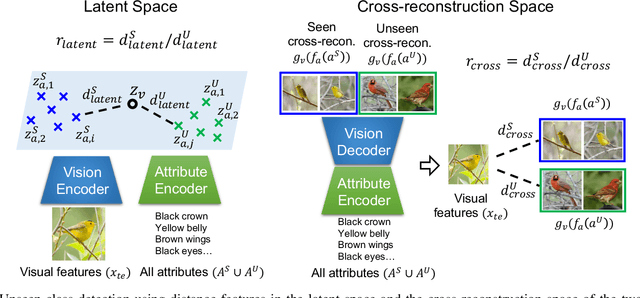A Gating Model for Bias Calibration in Generalized Zero-shot Learning
Paper and Code
Mar 08, 2022



Generalized zero-shot learning (GZSL) aims at training a model that can generalize to unseen class data by only using auxiliary information. One of the main challenges in GZSL is a biased model prediction toward seen classes caused by overfitting on only available seen class data during training. To overcome this issue, we propose a two-stream autoencoder-based gating model for GZSL. Our gating model predicts whether the query data is from seen classes or unseen classes, and utilizes separate seen and unseen experts to predict the class independently from each other. This framework avoids comparing the biased prediction scores for seen classes with the prediction scores for unseen classes. In particular, we measure the distance between visual and attribute representations in the latent space and the cross-reconstruction space of the autoencoder. These distances are utilized as complementary features to characterize unseen classes at different levels of data abstraction. Also, the two-stream autoencoder works as a unified framework for the gating model and the unseen expert, which makes the proposed method computationally efficient. We validate our proposed method in four benchmark image recognition datasets. In comparison with other state-of-the-art methods, we achieve the best harmonic mean accuracy in SUN and AWA2, and the second best in CUB and AWA1. Furthermore, our base model requires at least 20% less number of model parameters than state-of-the-art methods relying on generative models.
 Add to Chrome
Add to Chrome Add to Firefox
Add to Firefox Add to Edge
Add to Edge